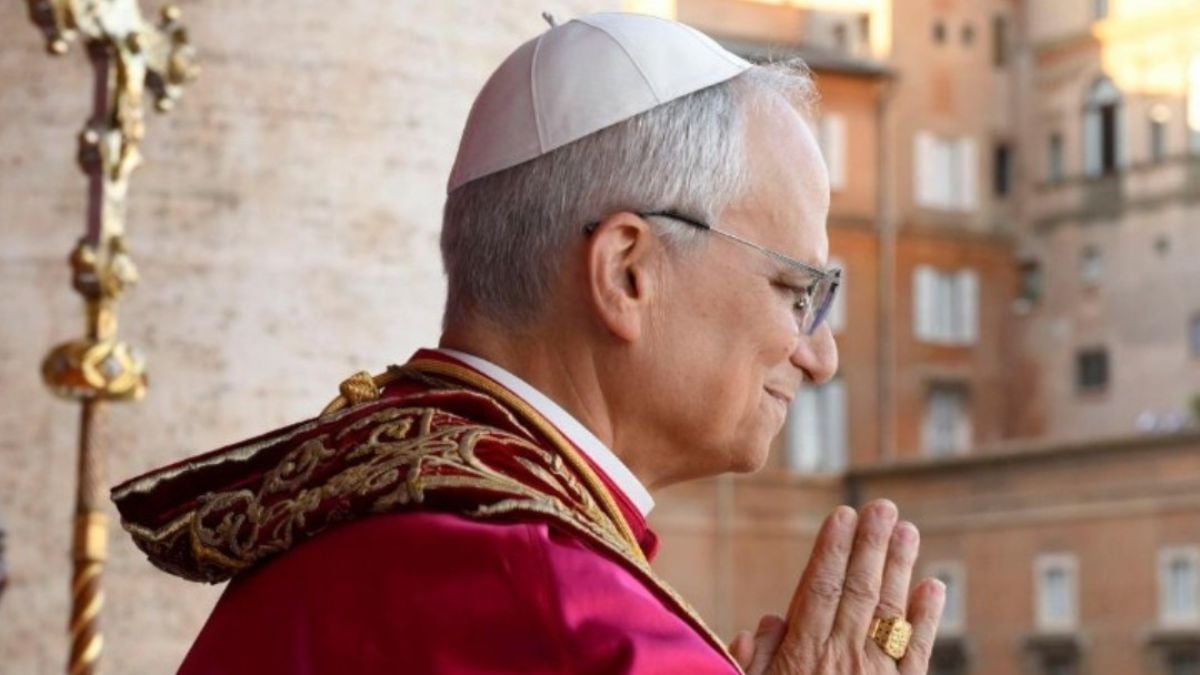
The election of Robert Prevost, now Leo XIV, as the new leader of the Catholic Church is much more than a religious event: it is a globally relevant occurrence with political, social, and yes, even market implications. For marketing professionals, understanding contexts of power — including spiritual ones — is essential for designing strategies, interpreting behaviors, and anticipating global narratives.
From value communication to the construction of global storytelling, the new Pope will directly and indirectly impact a global audience of 1.4 billion Catholics, according to Vatican and Statista 2025 figures.
ALSO READ. Leo XIV: Who Is the New American Pope? Career and Net Worth
What is the real power of the Pope in today’s world?
While the Vatican lacks “hard power,” its influence as a moral, cultural, and diplomatic actor is considerable. Recent examples prove this:
- John Paul II played a key role in the fall of communism in Eastern Europe and the Berlin Wall.
- Francis was instrumental in the reestablishment of diplomatic relations between Cuba and the United States, mediating between Barack Obama and Raúl Castro.
The new Pope inherits that symbolic power, now with an ideological backdrop opposing global far-right movements. Leo XIV, successor to Jorge Bergoglio, does not assume the pontificate during peaceful times: he steps in during an era marked by the rise of far-right ideologies, ideological fragmentation, and the reshuffling of geopolitical balances.
Who is Leo XIV and why does his American origin spark debate?
Robert Prevost, now Leo XIV, is a Chicago native, former bishop in Peru, and the first Pope born in the United States. Although his U.S. citizenship is a geographic fact, his pastoral journey in Latin America and his formation among the Augustinians profile him more as a global leader than a representative of the American way.
The election of an American Pope breaks paradigms: from 33 A.D. to 2025, 80% of the 266 popes were Italian. The United States, despite having 85 million Catholics, had never had a pope. This novelty places the Catholic Church at the heart of a new ideological chessboard where Donald Trump, JD Vance, and ultraconservative ideologies are challenged.
The lingering question from some analysts is whether Robert Prevost can become a counterforce to Trump’s policies.
Is Robert Prevost conservative? A look at his ideology
The question “Is Robert Prevost conservative?” doesn’t have a categorical answer. His record includes votes in Republican primaries (2012–2016), but also sympathy toward Democratic positions (2008–2010). On key topics like climate change, the war in Ukraine, or migration, Leo XIV has shown a critical stance toward Donald Trump’s approach. During an interview with CNN, Dr. Massimo Faggioli stated: “If Trump and Vance wanted an American pope, Prevost was not the one they wanted.”
On sensitive issues such as female ordination or same-sex marriage, Pope Leo XIV maintains the Church’s institutional traditionalism, but he has shown pastoral empathy toward the LGBTQ community. In 2012, he criticized “media sympathy for lifestyles that contradict the gospel,” but in practice, he has focused on pastoral accompaniment rather than exclusion.
What is the actual reach of the new Pope’s power?
While the Vatican lacks hard power, its soft power is enormous: over 1.39 billion Catholics worldwide, with rapid growth in Africa (+7.27 million) and the Americas (+5.9 million), while Europe is losing followers. This implies a global influence network that affects everything from symbolic consumption (rosaries, books, pilgrimages) to political decision-making.
Moreover, the Peters’ Pence, which raised nearly €50 million in 2023, is an indicator of faith-based economic mobilization. The United States was the top donor: €13.6 million. The Church also generates self-sustained income — such as through the Vatican Museums — and allocates key resources to communication, evangelization, and supporting churches in need.
What does Leo XIV mean for Latin America?
Prevost lived and served in Peru for nearly two decades. This experience has shaped a pastoral vision close to the Global South. His election continues Francis’ “de-Europeanization” of the Church and directly confronts the expansion of far-right movements and evangelical influence in the region.
In countries like Brazil, Catholicism declined from 75% (1994) to 52.8% (2023), and projections suggest it will drop to below 40% by 2032 — nearly equal to evangelical numbers. In this context, a pope with Latin American ties seeks to be an important discursive counterweight against the rise of evangelical conservatism.
What role will he play in international politics?
In his first address, Leo XIV declared: “No more war!” He called for a “genuine and lasting peace” in Ukraine, Gaza, and between India and Pakistan. He echoed Francis’ phrase about a “World War III fought in parts” and urged global powers to halt conflicts. This narrative positions him as a moral actor in the international arena, opposing authoritarian leaderships.
He has been critical of Russia’s invasion of Ukraine — labeling it a crime against humanity — and of the lukewarm positions of some American politicians. He has also reiterated the call to protect the environment, aligning himself with the encyclical “Laudato Si’.”
What does this mean for brands and consumers?
Marketers should pay close attention to Leo XIV as a generator of cultural narratives. The Catholic Church remains a powerful institution that can influence the behavior of millions of consumers. For example:
- The values promoted by the Pope shape social campaigns in Catholic-majority countries.
- Environmental stances impact sustainable branding.
- The pro-migrant narrative can be used in storytelling by brands advocating for inclusion.
- The new Pope’s ideology influences cultural reception of products, from cinema to fashion or sacred art.
The Pope as a personal brand
Beyond his religious office, the Pope has historically embodied one of the most influential personal brands on the planet. His image, messages, and gestures have instant global reach and resonate with diverse audiences, often beyond the Catholic world. John Paul II understood this dimension from the beginning of his papacy: he was a charismatic leader who mastered mass media communication, traveled to over 100 countries, and positioned himself as a symbol of hope in the fight against communism. His presence was recognizable even to non-believers, and he succeeded in constructing a powerful narrative of faith, freedom, and resistance.
Pope Francis also understood the power of spiritual branding. From the moment of his election, his simplicity, his name honoring St. Francis of Assisi, his plain speech, and his closeness to the poor quickly positioned him. In a media environment dominated by social networks and immediacy, Francis masterfully used emotional and symbolic storytelling, becoming a respected moral voice even among those outside the Church.
The election of the new Pope triggered a Google search boom and ranked among global trends on social media. The digital conversation reveals sustained interest from young and politically engaged audiences.









